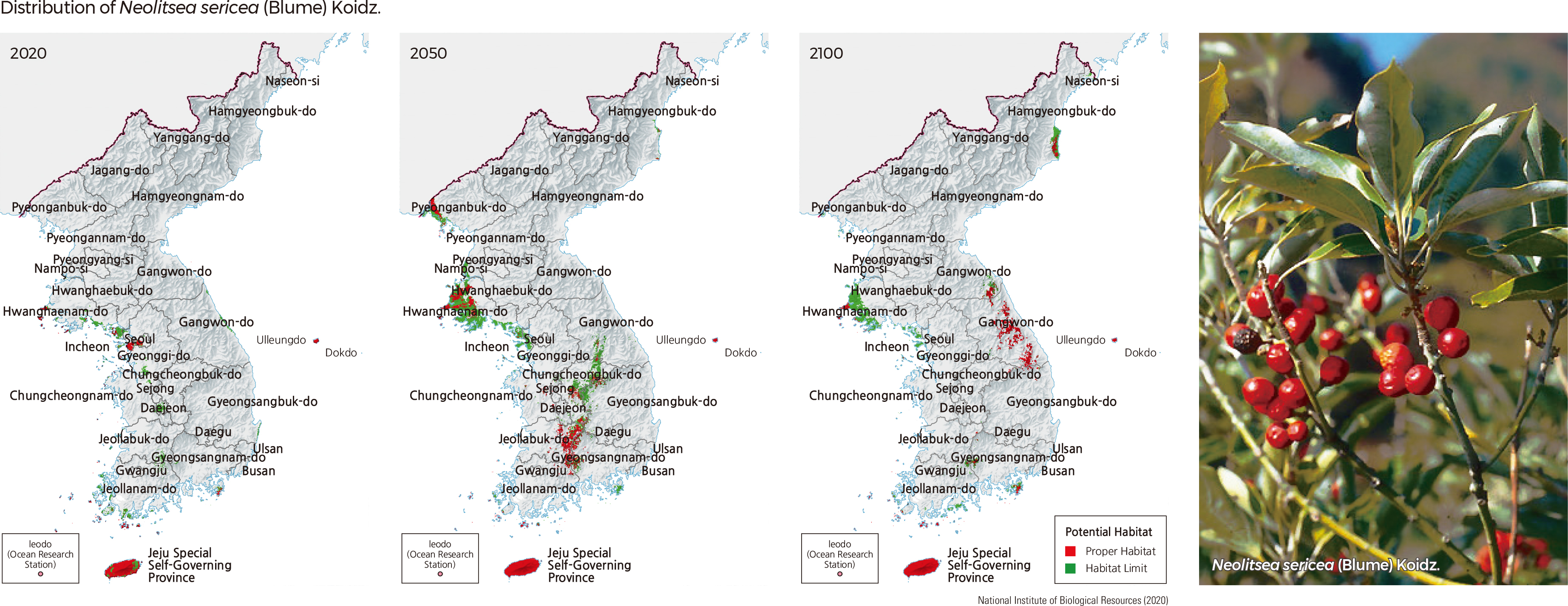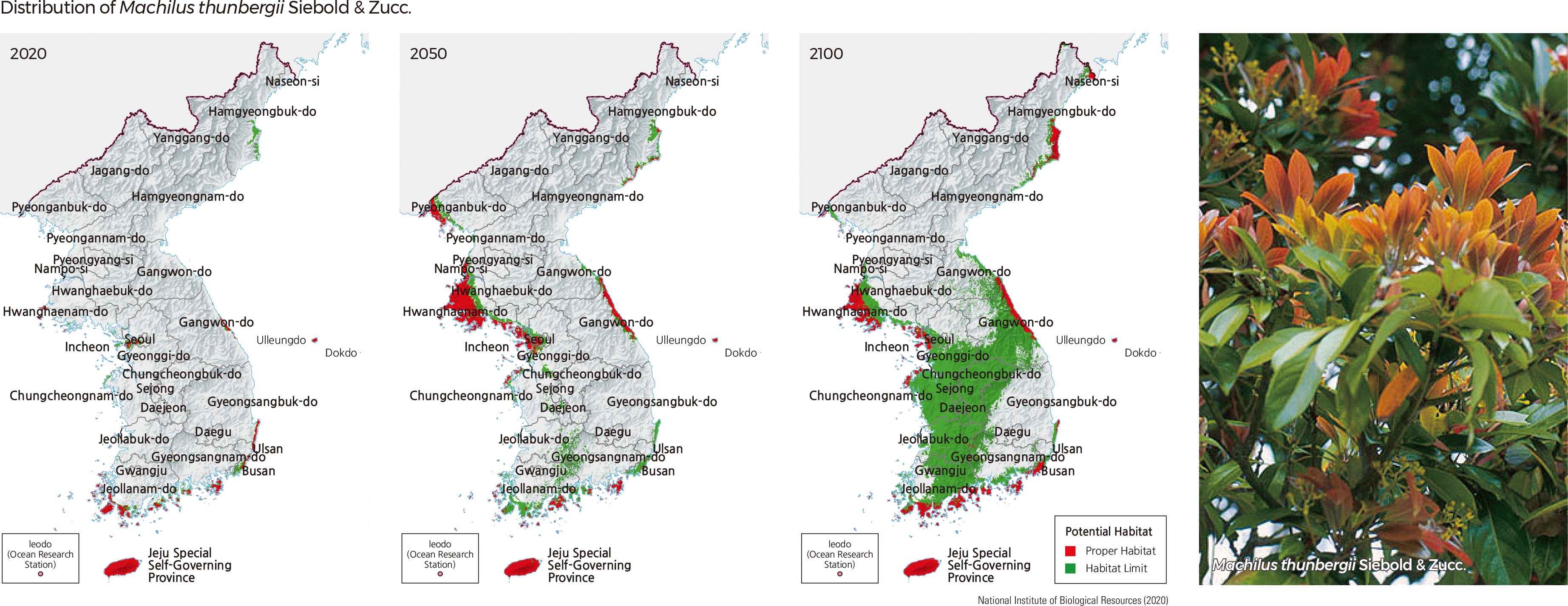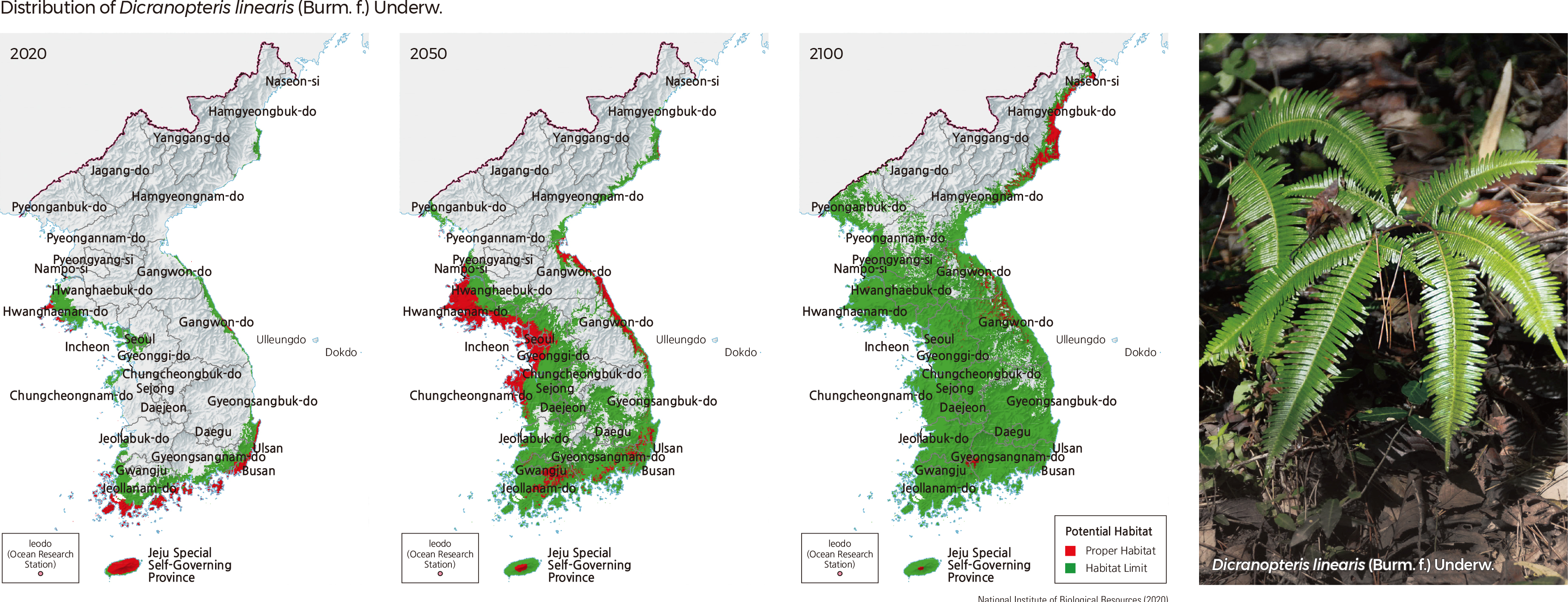English II 2020
Concerns about the impacts of global warming and extreme weather events call for the preparation of adaptive measures against climate change for biota in Korea. As a result of these requirements, studies on future changes of some species' distributions are being carried out to scientifically analyze the impacts of climate change on the distribution of the Korean biota. These studies include the prediction of future changes of some species' distributions and the development of future habitat suitability maps for those species that are climate-sensitive biological indicator species (CBIS) and candidates for CBIS status. Future climate projections for this process are based on the climate change scenarios of the Intergovernmental Panel on Climate Change (IPCC).
The Japanese Silver Tree (Neolitsea sericea), Japanese Bay Tree (Machilus thunbergii), and Old World Forked Fern (Dicranopteris linearis) are some of the representative subtropical evergreen plants in the southern provinces of Korea. These subtropical species are expected to undergo a nationwide spread in their distribution due to accelerating global warming. Therefore, subtropical species are expected to compete with the temperate plants formerly inhabiting the region. Continuous monitoring and long-term research for future predictions are proposed to mitigate the expected damage to the biodiversity in Korea. The results of the studies will be used in the development of climate change adaptation policies for biodiversity in East Asia and in the establishment of the selection criteria for climate change index species. |


